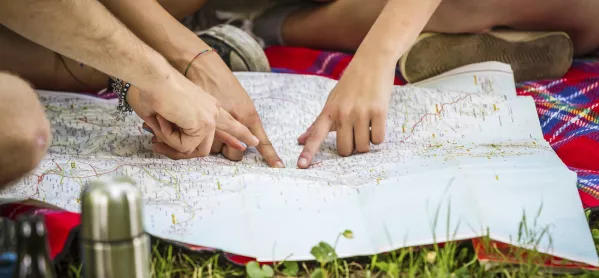Geography just keeps getting more popular - so what’s the subject’s secret?

As geography teachers return to school they will see their subject continuing to expand at all stages of education. For the fifth year running, GCSE entries have risen. At A-level, geography had the largest percentage increase of all the major subjects in 2015, with candidate numbers rising sharply by 13 per cent, following on from the 19 per cent increase in GCSE in 2013. Enrolment on undergraduate courses is running higher than national averages, and graduating geographers experience some of the lowest unemployment levels of any degree subject. Such positive news is welcome and provides a firm foundation for the introduction of the new GCSE and A-levels from September 2016.
So, what has happened to boost geography over the past 10 years? In short, it’s a powerful mix of sustained advocacy, support from successive governments, independent evaluation and the slow trickle of messages getting through.
The initial boost for geography came in 2006. This marked the first time the government substantially invested in geography at school, with Lord Adonis signing off a five-year, £3.8 million action plan. The Royal Geographical Society (RGS) led the advocacy for this, bringing representatives together from across the community - schools, universities, employers and business leaders. Breadth of community support, leadership by learned societies and professional bodies, a strong subject body in the form of the Geographical Association and speaking with one voice as a community have been powerful forces for the discipline ever since.
Meanwhile, geography teachers saw the action plan as a long-awaited vote of confidence in their discipline, as well as providing essential professional support.
With new challenges under the coalition government came new opportunities. In my opinion, the challenge was both good and necessary. It was time for a review of the curriculum, time to strengthen, modernise and rebalance content, to embed skills, to remove repetition and to reinforce fieldwork. Geography is naturally strong on knowledge and the rationale is clear - we all need to understand the changing world we live in, from the smaller scale (neighbourhoods and hillsides) to the larger (global cities and tectonic plates). So now we have a 5-19 curriculum that embraces the “what and where” of geography but also progresses systematically to the “how and why” - the economic, environmental and social processes that together bring about changes in landscapes and communities, places and regions, the biosphere and the atmosphere.
The inclusion of the study of either geography or history in the English Baccalaureate performance measure marked the second great boost of the past 10 years. It accounts for much of the recent increase in uptake of geography at GCSE and A-level, but it is far from the only catalyst. The independent recognition of the subject as “facilitating” in the University of Cambridge’s influential report in 2011 has undoubtedly also helped. So, too, has the Geography Ambassadors programme, and the hard work and inspiration of very many outstanding teachers of geography through more than 20 years of almost continual change at school and in the curriculum.
In addition, the positive contribution of geographical research and information to the UK economy and society at large is increasingly being recognised not only by teachers but also by policymakers, the general public and parents. This goes well beyond the ability to dial up a map on a smartphone, useful though that is. Rather, it recognises that, for example, an estimated 10 per cent of UK plc is reliant on data collected by the Ordnance Survey and that geographic information systems are a thriving multi-billion-pound global industry.
There are also a myriad other challenges - such as where to build new homes or how best to manage flooding - which call out for the application of geographical understanding and skills. At the heart of these many perspectives lies the growing importance of a central concept of geography: the significance of “place”. This shapes the nature and success of many government policies, business decisions and the delivery of public services. Our connection with, and experience of, places also strongly shapes the nature of our individual, regional and national identities.
Throughout, schools, universities and the wider community - including my own organisation, the RGS, which supports the discipline across all these sectors - have promoted geography’s innate relevance and value and firmly made and grasped some key opportunities. So have successive governments. We have not all, or always, had a shared agenda, and the whole sequence of events was certainly not planned. But events have played out well to support a rigorous, relevant and civilising subject that is, and should continue to be, at the heart of education in a world characterised by change and challenge.
Put simply, geography is in a better place that at any time in the past 20 years, and deservedly so.
Dr Rita Gardner is director of the Royal Geograpical Society (with the Institute of British Geographers)
Keep reading for just £1 per month
You've reached your limit of free articles this month. Subscribe for £1 per month for three months and get:
- Unlimited access to all Tes magazine content
- Exclusive subscriber-only stories
- Award-winning email newsletters
